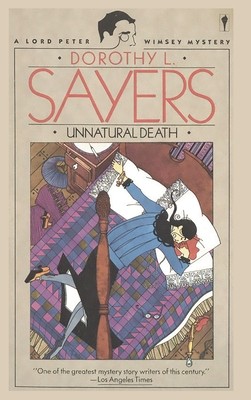
- We will send in 10–14 business days.
- Author: Dorothy L Sayers
- Publisher: Ancient Wisdom Publications
- ISBN-10: 195799018X
- ISBN-13: 9781957990187
- Format: 15.2 x 22.9 x 1.3 cm, kieti viršeliai
- Language: English
- SAVE -10% with code: EXTRA
Reviews
Description
Lord Peter Wimsey and his friend Chief Inspector Parker are told about the death, in late 1925, of an elderly woman named Agatha Dawson who had been suffering from terminal cancer. She was being cared for by Mary Whittaker, her great-niece and a trained nurse. Miss Dawson had an extreme aversion to making a will, believing that Miss Whittaker, her only known relative, would naturally inherit everything. Wimsey is intrigued in spite of the fact that there is no evidence of any crime (a post-mortem found no sign of foul play), nor any apparent motive (on Miss Dawson's death her estate did indeed pass, as she had expected and wished, to her great-niece).
In Murder in the Closet: Essays on Queer Clues in Crime Fiction before Stonewall (2017), Noah Stewart described Mary Whitaker as being "to my knowledge the most clearly delineated homosexual character in Golden Age detective fiction, despite the word 'lesbian' never being used, and she's depicted as enticing a young girl into a life of homosexuality". The episode in which Mary Whittaker is kissed by Wimsey is "the closest that a writer in 1927 would be able to come to saying that a character was a lesbian and that kissing a man made her want to vomit." Laura Vorachek argued that, in the novel, "Sayers attempts to challenge the prevalent cultural associations of blackness and criminality.
EXTRA 10 % discount with code: EXTRA
The promotion ends in 23d.13:12:26
The discount code is valid when purchasing from 10 €. Discounts do not stack.
- Author: Dorothy L Sayers
- Publisher: Ancient Wisdom Publications
- ISBN-10: 195799018X
- ISBN-13: 9781957990187
- Format: 15.2 x 22.9 x 1.3 cm, kieti viršeliai
- Language: English English
Lord Peter Wimsey and his friend Chief Inspector Parker are told about the death, in late 1925, of an elderly woman named Agatha Dawson who had been suffering from terminal cancer. She was being cared for by Mary Whittaker, her great-niece and a trained nurse. Miss Dawson had an extreme aversion to making a will, believing that Miss Whittaker, her only known relative, would naturally inherit everything. Wimsey is intrigued in spite of the fact that there is no evidence of any crime (a post-mortem found no sign of foul play), nor any apparent motive (on Miss Dawson's death her estate did indeed pass, as she had expected and wished, to her great-niece).
In Murder in the Closet: Essays on Queer Clues in Crime Fiction before Stonewall (2017), Noah Stewart described Mary Whitaker as being "to my knowledge the most clearly delineated homosexual character in Golden Age detective fiction, despite the word 'lesbian' never being used, and she's depicted as enticing a young girl into a life of homosexuality". The episode in which Mary Whittaker is kissed by Wimsey is "the closest that a writer in 1927 would be able to come to saying that a character was a lesbian and that kissing a man made her want to vomit." Laura Vorachek argued that, in the novel, "Sayers attempts to challenge the prevalent cultural associations of blackness and criminality.


Reviews